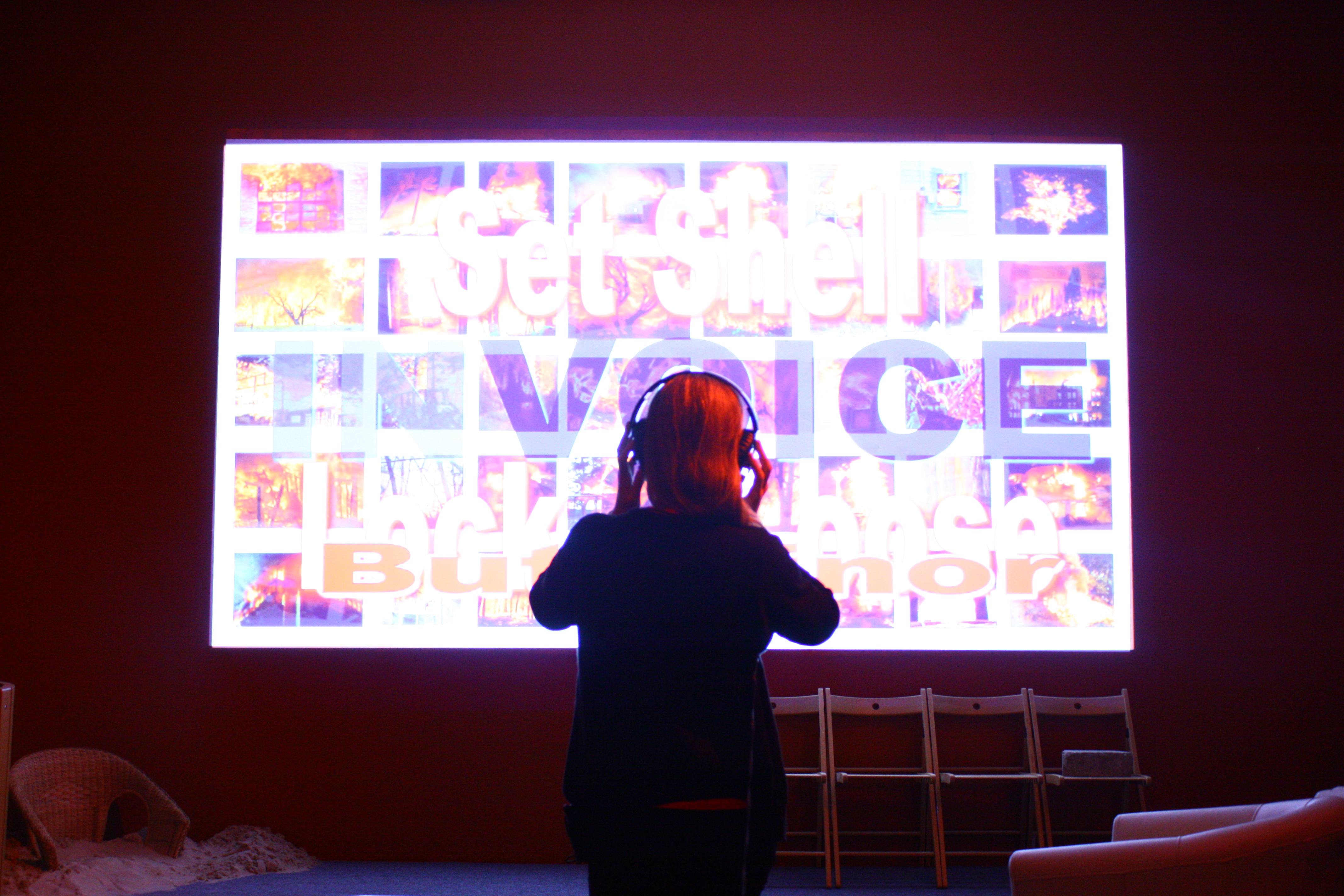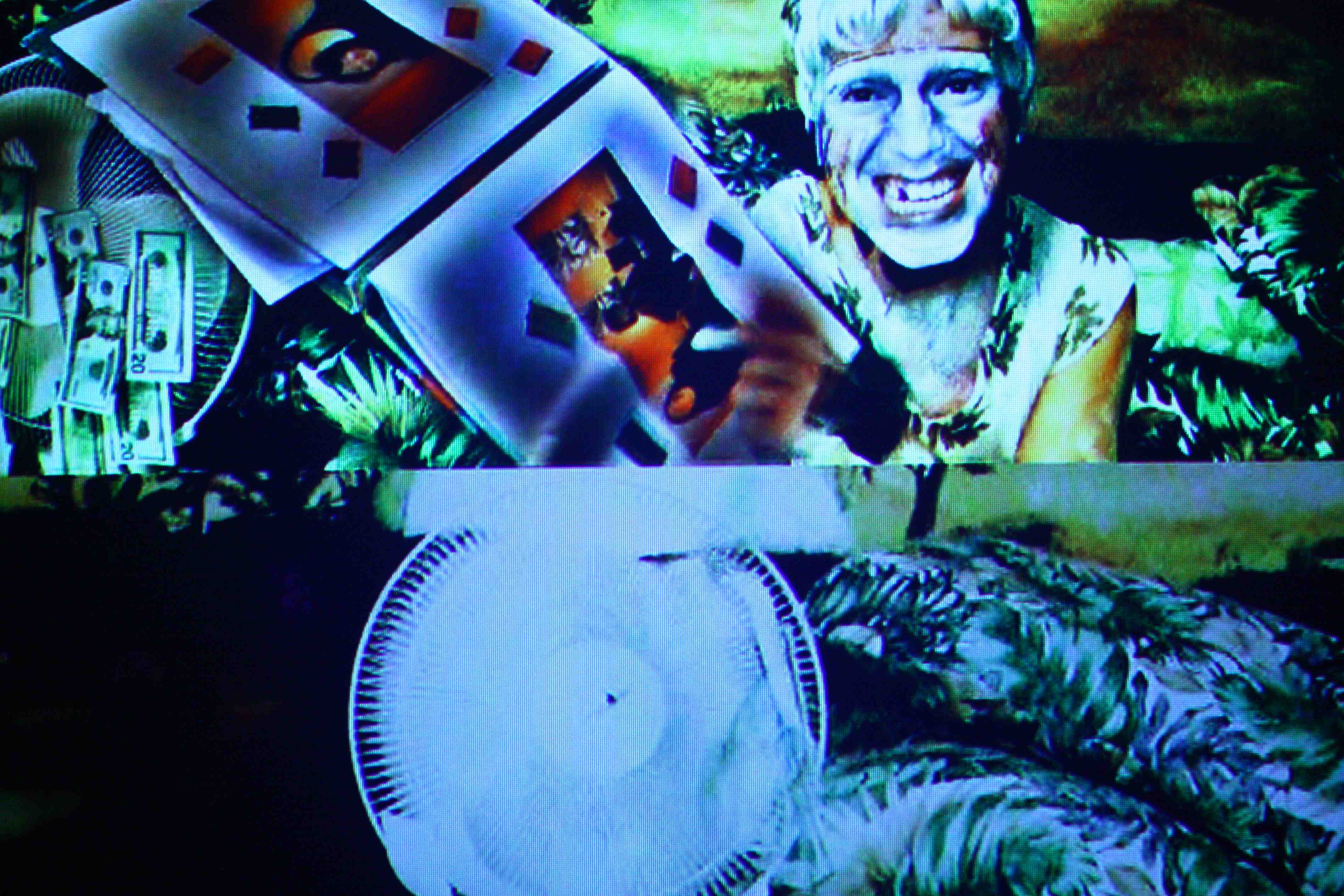

An anonymous comment on TheDailyBeast.com's review of Ryan Trecartin's video and installation blockbuster Any Ever at MoMA PS1 leveled the most flattering of insults. AnyoneforTea wrote, "The art world died with the fraud of Pablo Picasso, everything since has just been trash." While no major review has been so daring as to mention Trecartin and the titans of modern art in the same breath, his arrival has been greeted with a sense of exuberance and relief.
Certainly, Trecartin's astounding reception reflects the art world's desire for a Michelangelo of Facebook or a Cézanne of late capitalism. However, no amount of fawning can undercut Trecartin's enormous achievement. Through performance and something that looks a lot like moral peril, Any Ever rejuvenates the subversive power of the critique while premiering an exhilarating new aesthetic.
Refreshingly, Trecartin skirts direct mining of images from advertising and the appropriation of reality TV clips in favor of a more forceful approach. Through performance, his characters embody the symbols and rhetoric of globalization, capitalism and celebrity while branding these distorted images onto grotesque human forms. In the process, Trecartin violently exposes the iconography of contemporary life in all of its trashy splendor.
One of the more uncomfortable moments arrives in the film The Re'Search. Here, a group of hyper-sexualized tweens with fast-forwarded squeaky voices recite non-sequential one-liners about cell phones, boyfriends and corporate contracts entrenching the physical manifestations of neoliberal consumerism -- its movements, gestures, thoughts and group dynamics -- before our very own eyes.

In another off-putting but comical scene -- Trecartin's disorienting environment is reminiscent of having multiple Youtube videos playing on various tabs simultaneously -- words are evacuated of individual or contextual meaning and performed in a way that signifies varying contemporary stereotypes. In other words, sentences don't mean anything on their own, but deploy phrases one would expect the stereotype to say. In Sibling Topics (section a), two characters have a long flirtatious conversation in the back of a car. A drunk woman repeats the phrase, "You're so sexy, you're super sexy" while inviting sexual advances with eye flutters and head tilts. Meanwhile, a man occupying the role of an L.A. rock star spouts hip-hop influenced verse in an Australian accent, chiefly, "Yeah baby, you know it." With deft accuracy, the instance induces a reaction akin to, "Ah, they would say something like that" even though nothing has been spoken.
The dynamics of the installations raise the volume of Trecartin's alarm. Global music, generic Afro-beats and generally liminal Muzak entice the viewer to lie across a soft couch in PS1's first of seven rooms. However, Trecartin breaks the serenity -- the cushy lull of consumerism. When the viewer puts on a set of headphones that rest on varying comfy surfaces (picking where to sit is half the fun), they witness a calamitous noise. The dichotomy mirrors the twenty-first century media world -- a tumult of information continually disrupting our ability to find clarity, purpose or meaning. In the void, the corporate dominates and defines desire and consciousness more effectively by reconstituting our value system around behaviors that better suit capitalism. Because he implores the viewer to put on the headphones, Trecartin asks us to tune in to the melee that surrounds us.
The result is something not unlike a refreshing morality. Obsessed with the future and the idea of being "post-device," Trecartin's characters prophesize the impending collapse of Western civilization. In some cases, these apocalyptic warnings seem to be both an ironic rehashing of clichéd pop-intellectualisms and an earnest declaration of intent at the same time. One such instance in Sibling Topics (section a) poignantly reveals a latent theme in Trecartin's work: the desire for something beyond the swamp of the twenty-first century self. "I want a soul, and I'm gonna make my own soul," his character proclaims while crashing in a timeshare McMansion in Florida. "'Cus I'm not going to wait and find out if I have one or not. I'm gonna make my own soul. Don't wait around."
Throughout Any Ever, Trecartin laces tiny revelations into discrete moments like drops of arsenic in our cultural coffee. In this concoction, stylistic innovation interacts with a keen sense of immediacy and cataclysmic terror. In the end, we are left with startling memories.
"It'll be fine," Trecartin unconvincingly whispers while he stares into the camera dressed as a zombie-like club kid Frankenstein. As the camera lingers on his expectant and mournful face, Ryan Trecartin converts the viewer. Trapped and scared inside a macabre global Candyland, the room around us suddenly gets a lot smaller.
This post first appeared on Artwrit.
Photos by Jimmy Lepore Hagan
